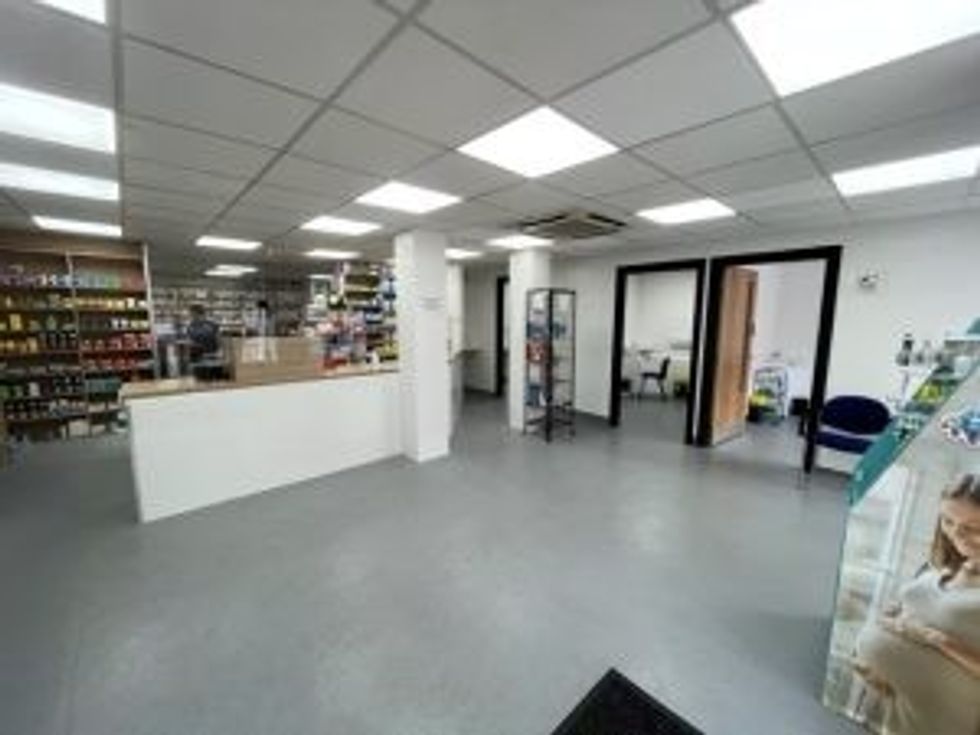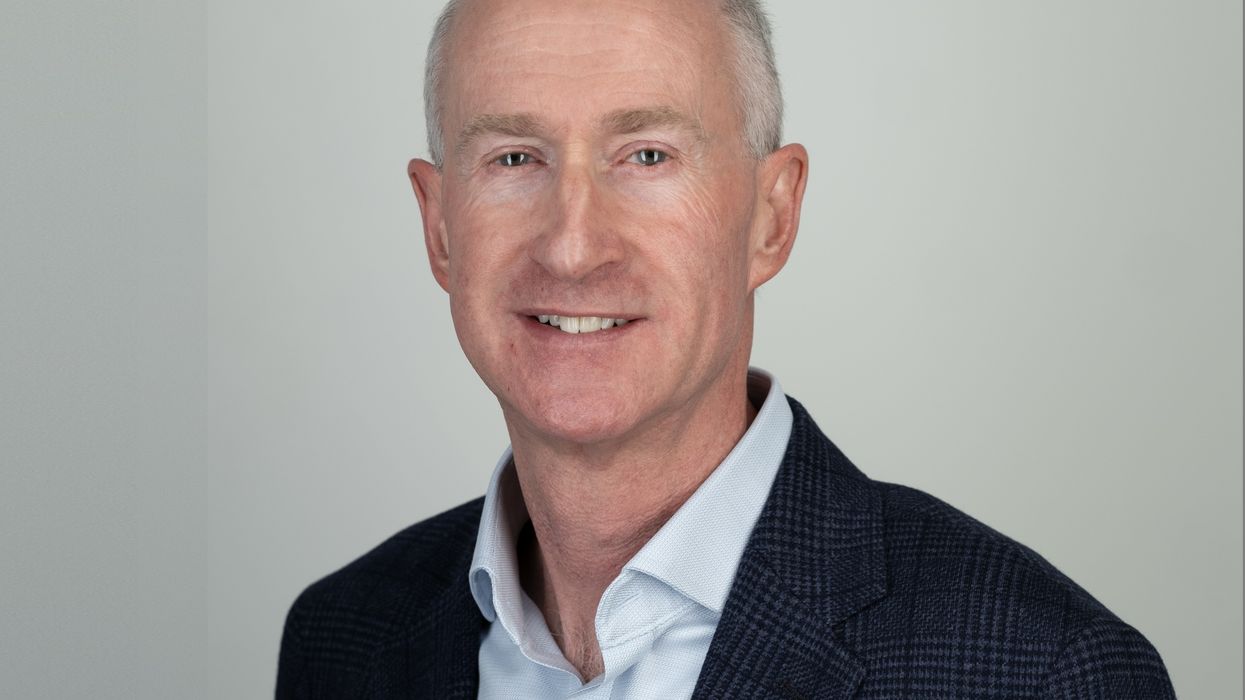Saghir Ahmed of Imaan Healthcare shares their growth strategies, highlighting the recent acquisition of two pharmacies
While large pharmacy chains in the UK are exiting the high street or downsizing their portfolios, smaller groups like Imaan Healthcare continue to grow their business through more acquisitions.
Imaan Healthcare has achieved over 100 per cent growth in the past year, expanding its portfolio from around 35 community pharmacies in January 2023 to now having 70 stores.
The Group recently acquired two pharmacies: Imaan Pharmacy in Shipley and Guardian Street Pharmacy in Warrington.
In an exclusive interview with Pharmacy Business, Saghir Ahmed, Director of Operations & Development at GreenLife Pharma and Imaan Healthcare, shared that this series of acquisitions came after the group agreed to buy some pharmacies from Rowlands and Lloyds about 12 months ago.
Imaan Healthcare is the parent company, under which there are other limited companies such as Imaan Limited and Townfield Limited, where pharmacies operate. GreenLine Pharma, although a separate limited company, serves as the management group for Imaan Healthcare.
Saghir Ahmed explained that the reasons for acquiring these stores include their location, overhead costs, and the potential of each site. Additionally, these acquisitions are helping to concentrate their estate in specific areas.
“Now, we have more stores concentrated in the Northwest, Yorkshire, and parts of the East Midlands,” Saghir Ahmed said.
He noted that this concentration facilitates better staff management, as pharmacists and other employees can be more easily relocated to cover absences or handle increased demand, thereby enhancing overall operational support for the stores.
Explaining the strategic significance of the new store in Warrington, Saghir Ahmed said, “We already have six pharmacies in Warrington and they are spaced no more than two miles apart. This provides good coverage within the town without eating into each other's patient group.”
He added that this setup allows the pharmacies to support each other operationally more effectively and potentially centralize services like travel vaccinations in just a few locations instead of providing them at each store.
Although the expansion is promising, it also presents challenges as Saghir Ahmed noted: “The stores don’t become well-operating entities overnight. There's a lot of work that has to go into it.
“We always retain the staff that we inherit during these transitions. We don't get rid of people, unless we have to. We always give people a chance.”
Larger corporations likely to sell off more pharmacies
Saghir Ahmed, who spent much of his career with Well Pharmacy working as a pharmacist, area manager and business development manager, believes that larger corporations are likely to sell off more of their pharmacies in the coming years, and companies like Iman and others of similar size will be positioned to acquire and manage these pharmacies.
According to business property adviser Christie & Co, there has been a rise in corporate pharmacy disposals as companies divest their marginal or underperforming assets. This trend has led to a market shift that increasingly benefits regional multiples and independent contractors.
Sharing his insights on this current market trend, Saghir Ahmed noted that in large corporations, it becomes challenging to maintain visibility, and as the organisation grows, there are more opportunities for operational issues, or "leakage," which becomes harder to manage. At times for larger corporations there can be a period of focus on reducing this leakage rather than developing the business and service to their patients.
When larger corporations are not operating well, they have only two options: either completely restructure their business operations or sell their assets.
“It's easier to make an X amount of money by selling your assets rather than playing the long game and improving your business,” Saghir Ahmed opined.
Saghir Ahmed explained that for Imaan and other businesses which are of similar size (medium size), it's more manageable the finer details of operations.
“That's why pharmacy businesses of our size or slightly larger sizes are acquiring additional branches because we feel we can operate them better,” he told Pharmacy Business.
When asked about future acquisition plans, Saghir Ahmed stated that the number of acquisitions will significantly decrease, and emphasised that the primary focus going forward will be to optimise the performance of their existing pharmacies.
“Our priority is to improve operational efficiency across the estate and to develop our service capabilities,” he added.

Pre-registration pharmacist programme and its benefits
Imaan Healthcare is also heavily involved in training the next generation of pharmacists via its innovative pre-registration Programme. Each year, the pharmacy chain recruits more than 60 pre-registration pharmacists through the Oriel recruiting platform.
Saghir Ahmed explained that the split placements approach, where pre-registration pharmacists spend half the week in a pharmacy and the other half in a GP practice, helps to foster strong relationships and improve efficiency between the two settings.
Moreover, this model enables pre-registration pharmacists to build rapport with GPs, leading to more effective communication and problem-solving. As a result, the pharmacists acquire valuable experience and become more employable with a range of career options.
Saghir Ahmed said that, in the middle of last year, they recruited about 60 pre-registration pharmacists but they intend to retain only eight of them.
Although only a small percentage will stay with the company, Saghir Ahmed takes pride in having developed well-rounded pharmacists who are well-prepared for their future careers.
According to Saghir Ahmed, they also currently have three pre-registration pharmacists undergoing a split placement at the office, a new initiative for them. One of these pharmacists, who recently completed her exam, is expected to join their team as a clinical governance pharmacist.
On measures Imaan Healthcare takes to ensure the resilience of their business against economic uncertainties, Saghir Ahmed said that they continue with their standard practices, which include maintaining robust procurement processes and regularly reviewing them for improvements.
He emphasised that a dedicated team manages these aspects, with administrative tasks and audit work handled remotely from the office, allowing pharmacists to focus on patient care and business growth.

Need to increase investment in primary care
Saghir Ahmed underscored the necessity of investing more in primary care and placing greater emphasis on public health.
“We spend a lot of money on the NHS, most of it goes into secondary care. So, what we do is we allow our people to become so sick that they end up in the hospital, which costs 10 times as much to treat them, which is silly.
“We need to focus more on putting more money into primary care and place greater emphasis on public health. We need to prioritize making our people and our communities healthier,” he said.
Furthermore, he said that patients should be encouraged to visit pharmacies first for treatment, with appropriate triage methods in place to refer them to GPs if necessary.
“GPs, who are often overwhelmed, should be seeing patients that are slightly more complex because less complex patients can be seen by pharmacists.”
However, he noted that this system should be designed so that GPs are not financially penalized for referring patients to other services.
Technological change likely to be seen in the future
Saghir Ahmed said that there will be a major transformation in pharmacy PMR systems, which have remained outdated for years.
“What you're going to start seeing now is more introduction of AI, which will allow tasks like prescription checking to be done via barcode scanning. This will enable pharmacists to focus on new or significantly altered prescriptions, and free a lot of their time as well. That's going to be a significant change within the sector over the next few years,” he added.
Expectation from the new government
Saghir Ahmed wants the new healthcare leaders to focus on achieving long-term goals rather than focusing on short-term issues like reducing hospital waiting times.
He also emphasised the need for improved long-term care to avoid crisis management and better support people as they age.
"We should be looking at the long term. We're all going to have parents, people who are going to be getting older. We want them to be looked after, but there needs to be better provision of care throughout their life. Rather than waiting until they reach 70-80 and have a heart attack, then it’s all crisis mode.
“I'm just fed up with crisis mode. That's how everything seems to work in healthcare right now," he said.
He added: “We need the country to invest financially in improving public health now and if done correctly we will have elderly people with better health prospects in ten years time than what we are seeing now.”














